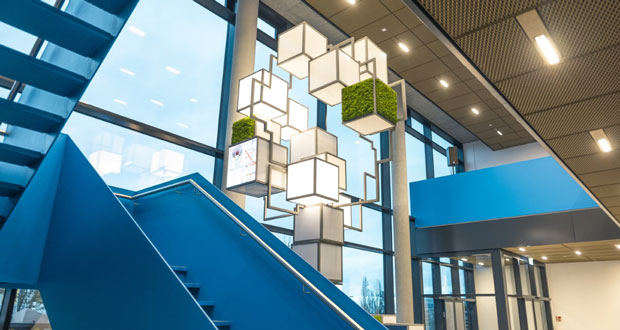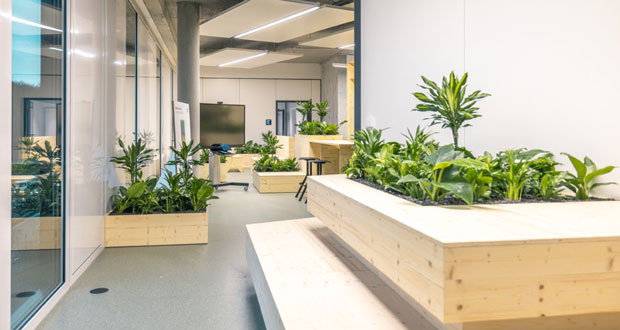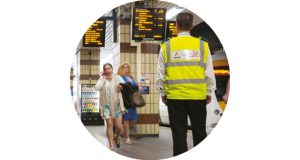Drees & Sommer recently invited FMJ to Stuttgart’s Vaihingen district to tour its new headquarters which offers visitors a benchmark of future design
Drees & Sommer is a leading European consulting, planning and project management enterprise that has delivered future-shaping solutions for successful buildings, high-yield portfolios, powerful infrastructure and liveable cities for over 50 years. Its new headquarters is a culmination of expertise as well as a benchmark of futuristic design and processes. The super-smart, sustainable and net energy-plus building, homes an intelligent workplace that embraces digital technologies to support not just hybrid working, but the health and wellbeing of occupants and the environment.
Costing €22 million, the four-storey building has a gross floor area of circa 7,000 square metres and features a large conference area, facilities for employees such as a terrace, a cafeteria, as well as a canteen with seating for up to 1,000. Considering only 200 employees will work there, there is a very generous amount of space on offer.
The customisable smart building, which makes more energy than it consumes, features a green façade, which covers an area of more than 100 square metres and extends over three stories to a height of 12 metres. In many cities, including Stuttgart, the greening of façades will be a requirement in future development plans. Planting greenery has a positive impact on the climate of the immediate surroundings and on biodiversity, especially in busy, bustling cities. The building does not heat up as much, insects settle at the location and the plant walls filter pollutants and insulate noise. Ultimately, though, the greenery creates a feel-good atmosphere and, in time, once the plants have flourished and the flowers have bloomed, a pleasing aesthetic.
The new building features photovoltaic systems on the roof and on the south façade, which means the building generates more energy than it consumes, thus meeting all expected future sustainability requirements. In addition to the living and solar-panelled walls, prefabricated modular construction using recycled and recyclable materials minimises waste, paving the way for a circular economy. This approach to construction can not only bring considerable cost and time savings in planning, production and assembly, but offers a more environmentally friendly approach to dismantling when the time comes, as 100 per cent of the material can be reused, compared to the industry average of zero per cent.
Drees & Sommer, which has recently made an initial minority investment in UK construction consultants AA Projects, prides itself on being at the forefront of the European digitisation and sustainability agenda. Its Cradle-to-Cradle design principle centres on the idea that waste is a design flaw – an approach that combats raw material scarcities with continuous cycles. This is not just a business card for Drees & Sommer, but a lighthouse project that will encourage a fresh approach to construction, which will in turn enrich the lives of people, and extend the life of the planet.
For more information on Drees & Sommer’s blueprint for sustainable construction click here.






